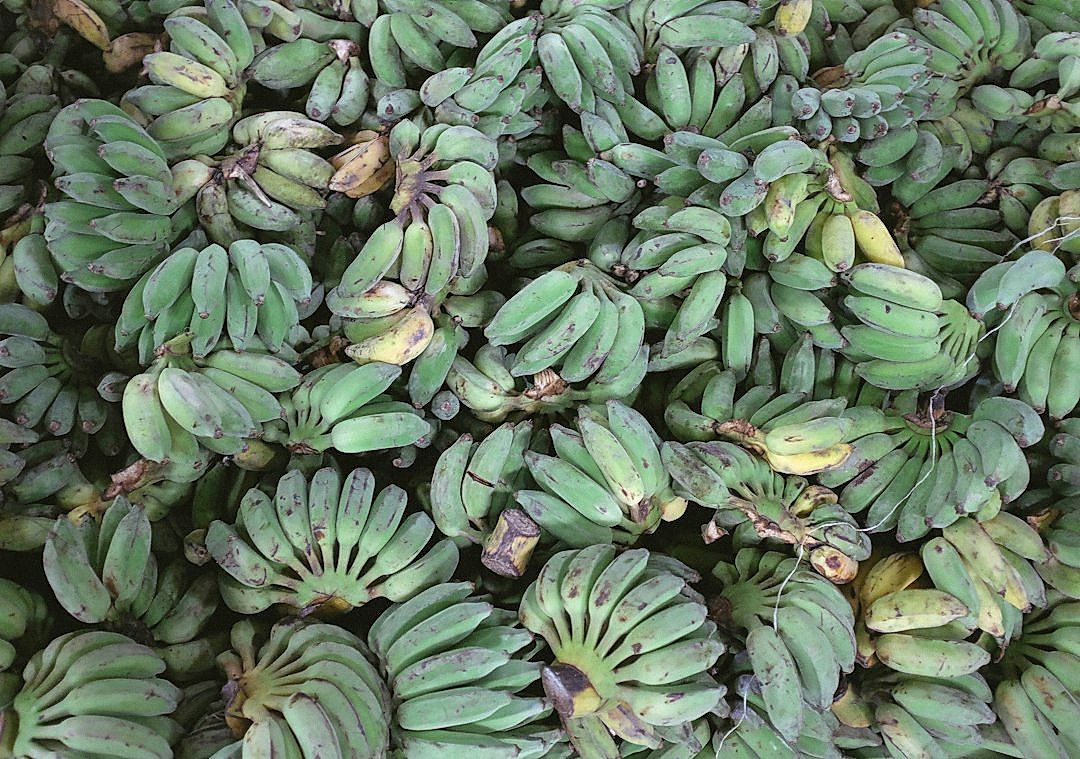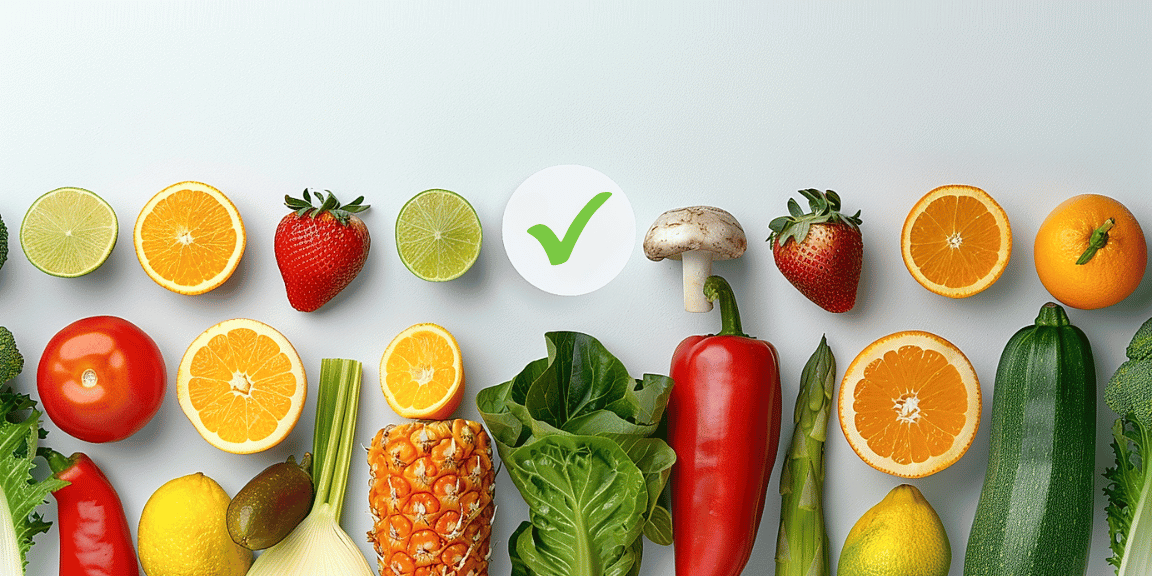Ensuring adherence to environmental regulations in the produce distribution sector presents multifaceted challenges.
These rules, set down by regulatory bodies and importance accorded by rising consumer demand, must be meticulously observed.
The consequences for dropping the ball can be severe, including legal repercussion, tarnished brand reputation and high penalties.
On the upside, strict environmental compliance offers clear business benefits aside from avoiding legal troubles.
It can enhance corporate image, improve operational efficiency and foster customer trust.
The task at hand is breaking down the steps to reach this goal without plateauing on the steep learning curve.
Environmental Compliance Tips For Produce Distribution
1. Implement eco-friendly packaging practices
In today’s world, sustainability is not just an option; it’s a necessity.
Distributors of produce must take active measures in implementing ecologically responsible packaging practices, for the sake of our planet.
One solution to this is biodegradable and recycled packaging.
These types of packaging, made from plant-based materials or post-consumer waste, reduce the use of finite resources and help in minimizing the volume of waste that ends up in landfills.
Another approach is to use reusable crates for shipping produce.
Not only does this method drastically decrease waste, but it also provides added benefits in terms of cost-efficiency and ease of handling during transport.
Consideration should also be given to how packaging is printed and labelled.
The use of lighter colors and materials that do not require a great deal of energy to print can make a significant difference in your carbon footprint.
Utilizing inks derived from soy or vegetables rather than petroleum-based alternatives is another way of contributing to ecological sustainability.
It is also essential to maximize the space utilization within each package, so as to transport as many products as possible in a single shipment, thus reducing overall emissions.
Combining this with other eco-friendly measures, such as the use of low-emission vehicles and optimized route planning, can significantly reduce the environmental impact of your distribution operations.
Lastly, it is vital to increase awareness and education amongst both staff and consumers about the reasons behind using eco-friendly packaging.
The more people understand the necessity and benefits of these practices, the more they will support and participate in them.
To support this, consider implementing a ‘green packing’ symbol or logo on your produce packaging to highlight your environmental efforts to consumers.
This can not only improve your company’s brand image but also encourage other businesses to pursue similar eco-friendly initiatives.
Regardless of the specific methods employed, the ultimate objective is to implement packaging practices that are in harmony with the environment while maintaining cost-effectiveness and efficiency in your distribution operations.
2. Regularly Maintain Food Transport Vehicles.
Ensuring the frequent maintenance of food transport vehicles is a key strategy in environmental compliance for produce distribution.
Regular maintenance of these vehicles can significantly reduce the emissions they produce, supporting a healthier environment.
Maintenance practices not only reduce harmful emissions, but they also improve the overall efficiency and lifespan of the vehicles.
By consistently maintaining your food transport vehicles, you can limit breakdowns, decrease fuel consumption, and reduce carbon footprint, fostering a more sustainable operation.
Food transport vehicles often have complex engines that, if left unchecked, can become inefficient and contribute to unnecessary greenhouse gas emissions.
Performing routine checks on parts such as the engine, tires, and exhaust systems is essential towards the sustainability of the food distribution process.
It’s also important to ensure the refrigeration units in these vehicles are running as efficiently as possible to prevent food spoilage and waste.
Maintaining the cooling systems helps to dramatically reduce the carbon footprint associated with food wastage in the distribution process.
Outfitting your fleet with the latest emissions reduction technology is another key strategy in regular vehicle maintenance.
Technologies such as diesel particulate filters and selective catalytic reduction systems can remove up to 90% of the ozone-depleting compounds from vehicle emissions.
Using eco-friendly lubricants and coolants in your vehicles can also make a substantial contribution towards reducing your environmental impact.
Cleaning and replacing air filters frequently can ensure peak engine performance, reducing fuel consumption and, in turn, lowering emissions.
Regularly changing the oil can also optimize engine efficiency and extend the life of your vehicle’s engine, leading to less waste in the long run.
Utilising a maintenance software program can automate the scheduling of essential service tasks, ensuring no crucial check-up or repair gets overlooked.
By adhering to these strategies in maintaining food transport vehicles, produce distributors can contribute significantly towards environmental sustainability while still meeting their operational needs.
3. Optimize route planning for minimal emissions
One crucial aspect of environmental compliance in produce distribution lies in the efficiency of route planning.
By optimizing delivery routes, companies can significantly reduce their emissions and, consequently, their environmental footprint.
While it may seem like a complex task, optimizing route planning is both feasible and beneficial.
Thanks to advancements in technology, movement tracking and route planning software have become indispensable tools in modern logistical operations.
These applications utilize complex algorithms to calculate the most effective routes, taking into account factors such as traffic patterns, varying fuel consumption rates, and real-time weather conditions.
By integrating such technologies, distributors can ensure that their vehicles follow the most efficient routes possible, subsequently reducing fuel usage and emissions.
Produce distribution companies must consider the direct correlation between distance travelled and the amount of greenhouse gases their vehicles release into the atmosphere.
Reducing travel distances doesn’t just benefit the environment; it also translates into significant cost savings.
It minimizes wear and tear on vehicles, cuts back on fuel expenses, and guarantees faster deliveries, all contributing to stronger customer satisfaction.
Another beneficial element of route optimization lies in its potential to reduce congestion in urban areas.
Consequently, this minimizes the environmental impact by reducing the amount of time vehicles spend stationary in traffic, a position where they still emit harmful pollutants but aren’t actually moving to meet their delivery targets.
Additionally, efficient route planning also ensures that the temperature control units used in delivering fresh produce consume less power.
Given that such systems can have a substantial carbon footprint, operating them as efficiently as possible can result in significant emission reductions.
The principle of optimizing delivery routes to curb emissions applies not just on a day to day basis, but also in the larger strategic planning.
By incorporating an environmental dimension in all their decision-making, businesses can integrate sustainability into their overall business strategy, thereby committing to the greater cause of environmental protection.
4. Engage in sustainable farming practices.
Engaging in sustainable farming practices is a crucial step towards ensuring environmental compliance in the produce distribution industry.
Distributors can contribute to these practices by choosing to work exclusively with suppliers who implement sustainable farming techniques.
The process of organic farming, for example, is an excellent method of sustainable agriculture that promotes soil health and biodiversity without the use of harmful chemicals.
This approach helps not only in preserving the environment but also contributes to the production of healthier and high-quality produce.
Integrated Pest Management (IPM), a biological approach to controlling pests and diseases, is another sustainable farming practice that distributors should look out for when partnering with growers.
By encouraging and supporting the use of IPM, distributors can play a significant role in reducing the amount of synthetic pesticides being introduced into our ecosystems.
Another practice that helps to maintain soil fertility and crop health is the use of crop rotation and cover crops.
Fruit and vegetable distributors can further contribute to sustainable farming practices by supporting growers who use water-efficient irrigation techniques.
Techniques such as drip irrigation or the use of more efficient sprinkler systems can help to conserve water while still ensuring crops get the necessary hydration they require.
As a distributor, it is not enough to merely source from sustainable producers; it’s also critical to ensure that fair trade practices are in place.
This means ensuring that farmers are paid fairly for their products, have safe working conditions, and that there is no exploitation within the supply chain.
Engaging customers and publicizing the distributor’s commitment to sustainable farming practices also plays a significant role in encouraging others in the industry to follow suit.
The use of certifications and eco-labels can be beneficial in communicating this message to consumers.
Transparency in sustainable practices boosts the consumers’ trust in the company and also motivates other companies to implement such strategies.
By choosing to support and promote sustainable farming practices, produce distributors can make a significant contribution towards the broader goal of environmental sustainability.
5. Promote zero waste through resource recycling.
In the world of Produce Distribution, one of the key environmental compliance tips is to promote zero waste through resource recycling.
The philosophy of zero waste aims to ensure that no trash is sent to landfills, incinerators or the ocean.
Instead, resources are to be respected and cycled back into the system, thus preventing any adverse environmental impact.
Implementing this principle in the realm of produce distribution can be an effective means of promoting environmental stewardship and sustainability.
One of the most viable ways to promote zero waste is through the recycling of resources such as packaging materials.
Produce distributors can revolutionize their waste management strategies by reusing, recycling, and composting leftover materials, all of which can dramatically reduce the amount of waste that ends up in landfills.
Another way to promote zero waste is by conducting regular waste audits to identify areas of excessive waste and implement strategies to reduce it.
Produce distributors can also explore the option of collaborating with other businesses to exchange waste materials for other useful resources, a practice known as industrial symbiosis.
Moreover, promoting zero waste includes engaging in efforts to educate employees, customers and suppliers on the importance and benefits of waste reduction and resource recycling.
Distributors can successfully spread the word about their recycling initiatives through marketing and promotional activities.
This not only raises awareness but also further solidifies the company’s image as a responsible and eco-friendly business.
Additionally, creating a dedicated recycling policy and ensuring its adherence is a surefire way to promote zero waste.
Such a policy should outline the company’s commitment to mitigate environmental harm by minimizing waste and efficiently utilizing resources.
Finally, it is important to take into account that promoting zero waste is not just an environmental compliance tip, but also a business strategy that can lead to cost savings, positive brand image, and increased customer satisfaction.
In conclusion, the promotion of zero waste through resource recycling is a fundamental pillar in achieving environmental compliance in the produce distribution sector.
The Bottom Line
Embracing environmentally-friendly approaches in the food industry is no longer optional but essential.
The implementation of sustainable packaging solutions significantly reduces pollution.
Diligent maintenance of transport vehicles lowers emissions and optimizes efficiency, while eco-friendly route planning further minimizes the carbon footprint.
Sustainable farming practices not only preserve our earth’s health but also ensure the long-term profitability of agriculture.
Moreover, encouraging zero waste by recycling resources harnesses endless opportunities for productivity and prosperity.
In essence, going green in the food industry augments environmental protection, health benefits, and economic gains, ultimately fostering a future that is more sustainable and thriving for everyone.




